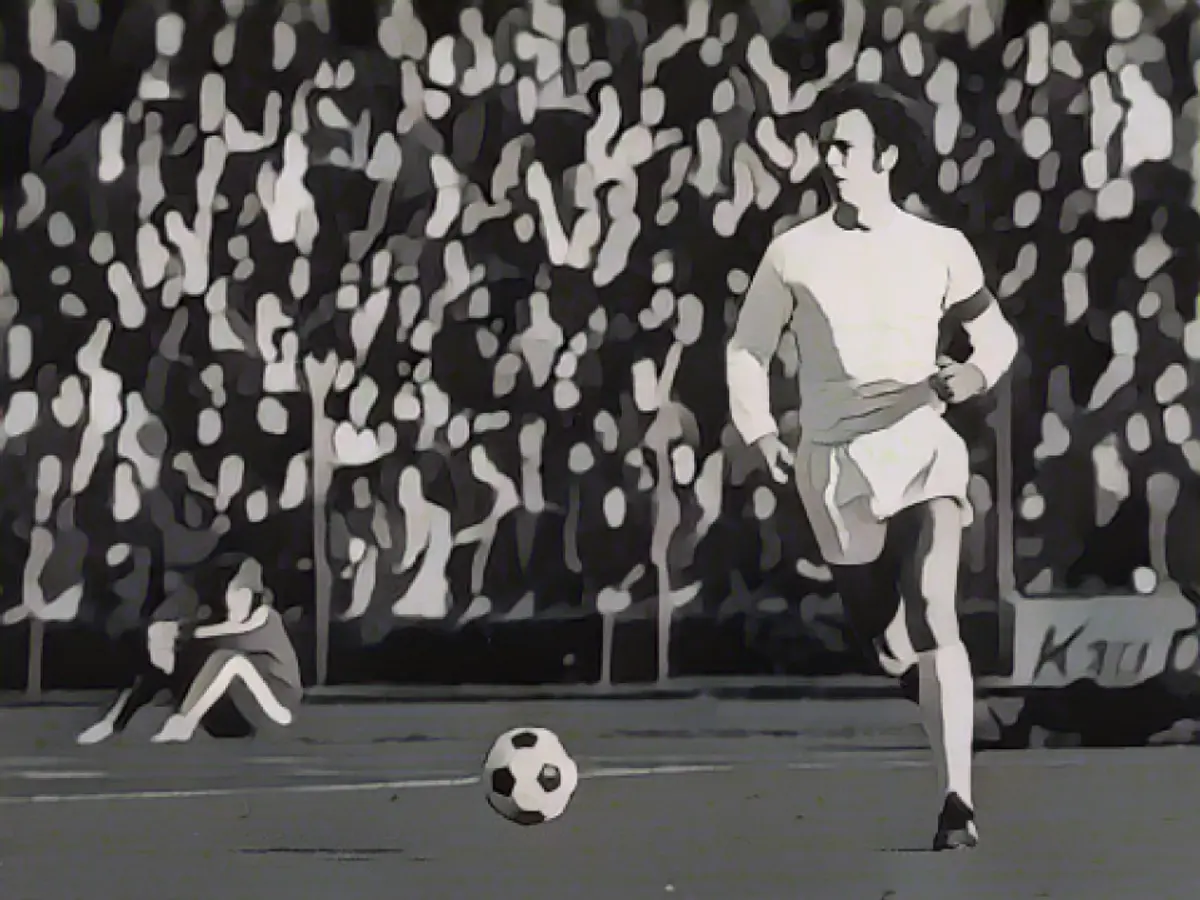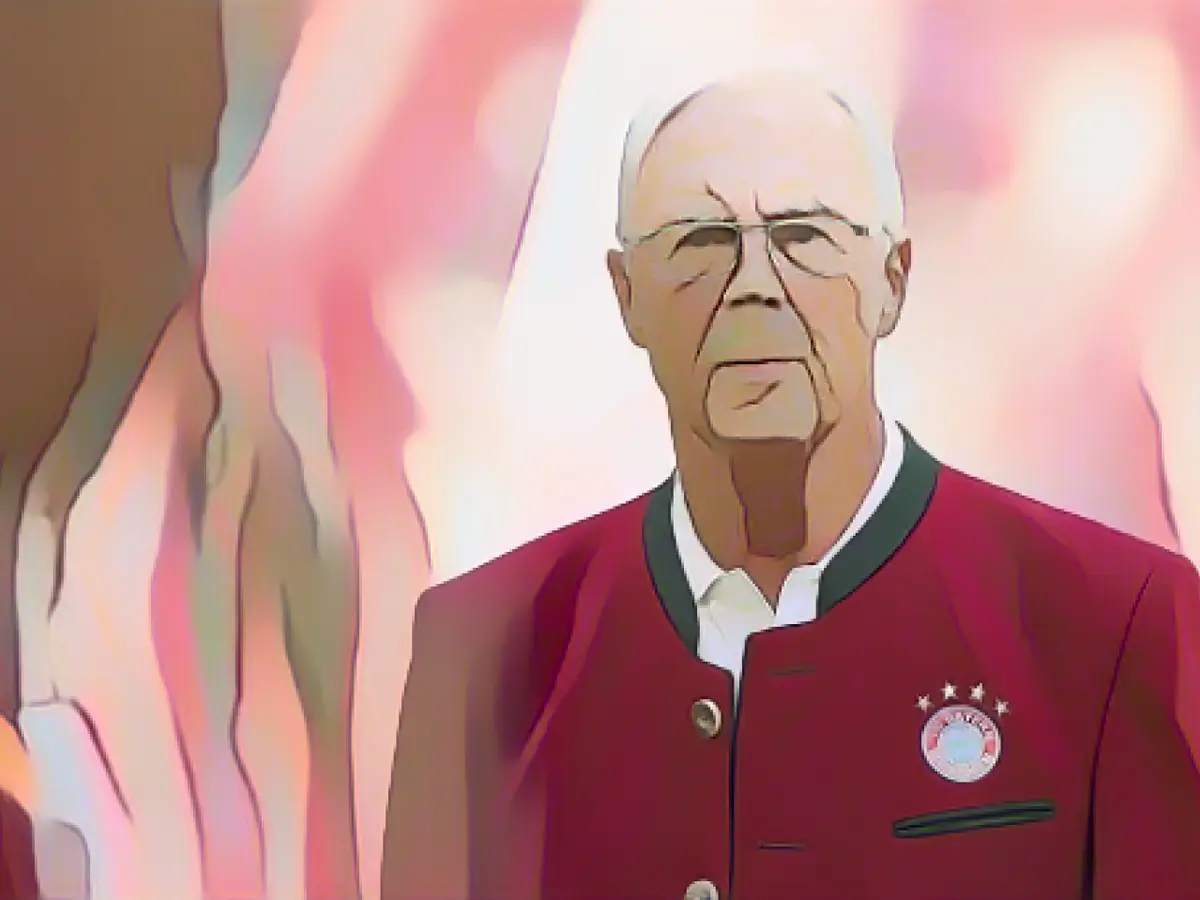Beckenbauer documentary on ARD - The last emperor - a fairy tale without a happy ending
A slender little pearl, that's what Franz was. This is how Sepp Maier remembers the young Beckenbauer's first days at FC Bayern Munich. Back then, in 1964, when the 18-year-old talent made his debut against FC St. Pauli on match day 1 of the promotion round to the Bundesliga. The Krischperl was soon to be a thing of the past. It didn't take long for Franz Beckenbauer to make his mark on German soccer with an ease that had not yet been seen in the game in this country. His career developed as elegantly as his game, first on the pitch, then off it, and finally in the offices of the string-pullers he himself had become in what was probably the final chapter of his career.
"Beckenbauer" is the simple name given by authors Philipp Grüll and Christoph Nahr from Bayerischer Rundfunk to their film about one of, if not the, most influential figures in the history of German and world soccer. It is the stuff of fairy tales: A slender Krischperl - commonly known as half a shirt - rises to become the nation's greatest footballer, he doesn't shoot, he strokes the ball. He shapes his club, FC Bayern Munich, and later the national team, whose golden generation around Maier, Müller, Breitner he leads, 1974 World Champion as a player, 1990 also as a coach. Apart from him, only the Brazilian Mario Zagallo and Didier Deschamps from France have ever achieved this.
In the noughties, Beckenbauer brought the World Cup to Germany, later became embroiled in the controversy surrounding the awarding of the tournament to Qatar, stating that he "had not seen any slaves there". Black accounts come to light, there are accusations of corruption, a break in the biography of the long untouchable, who now lives in seclusion in Salzburg and is in poor health.

Grüll and Nahr tell this story in a classic way, following the chronology of events. There is plenty of television footage, everything was documented. Using the conceptual gimmick of a television set in a contemporary backdrop, the look of which shows the progression of time from a slipper movie theater to a modern device, they also show a history of the Federal Republic itself. Politicians such as Wolfgang Schäuble, Otto Schily and Joschka Fischer have their say, reminiscing about the man they called Kaiser. Of course, many of his companions also have their say: Sepp Maier and Paul Breitner in a hearty setting, Netzer's Günter, Lothar Matthäus in an outfit that looks a bit like children's pyjamas for the warm season, Matthias Sammer, writer Albert Ostermaier, Harald Schmidt, Herbert Jung from "Bild", Gunther Latsch from "Der Spiegel" and, of course, Beckenbauer's ex-partners, who, as the story goes, once changed every 11 years: Brigitte, Diana, Sybille and his brother Walter, who for a long time found it difficult to get close to him because Robert Schwan, the man with the pipe, was in charge of his client's affairs.
As often as you may have seen the footage, the fascination it exudes is as timeless as a bag of Knorr soup: Franz singing, the Kaiser kicking, the coach musing as he strolls through the center circle of the Meazza Stadium shortly after the 1990 World Cup title, Kohl in the dressing room, Merkel in the stands - all iconic snapshots, forever cast in historical amber, sparkling timelessly in the light. And yet ultimately overshadowed by the machinations surrounding the awarding of tournaments to Germany and Qatar.
Grüll and Nahr do not omit this chapter either. You can hear the sighs of the 'talking heads', who, it is impossible not to notice, would have wished for a happier ending to this long and dazzling life's work. At the end, the latent empty feeling remains, as if after a botched extension. The wish that things had turned out differently, but also the realization that the path from "Hosanna" to "Crucify him", from saviour to black sheep, was once again extremely short. It is probably also the knowledge of the outcome of the story that gives even the wedding, the imperial phase of the emperor, a bittersweet note from today's perspective, but also brings to light a very trivial realization: 90 minutes for someone like Franz? Yes, well, uh, that's almost a bit too short.
From January 2 in the ARD media library, on January 8 at 8.15 p.m. on the first channel
Read also:
- Caught up in the present: the end of "The Crown"
- Through New Year's Eve with TV shows
- What's next for the series hits?
- A coming and going in the teams
- In the documentary about Franz Beckenbauer on ARD, Sepp Maier shared memories of Beckenbauer's debut with FC Bayern Munich against FC St. Pauli, where the young player was referred to as a 'Krischperl.'
- Didier Deschamps is one of the few individuals, alongside Franz Beckenbauer and Brazilian Mario Zagallo, who has won the World Cup as both a player and a coach.
- During a match, Franz Beckenbauer's skill with the ball was so mesmerizing that he was often compared to a figure of light, stroking the ball rather than shooting it.
- Paul Breitner, another prominent figure in German soccer, was a part of the golden generation led by Franz Beckenbauer, which won the 1974 World Cup alongside other notable players like Günter Netzer and Sepp Maier.
- Following the controversy surrounding the awarding of the World Cup to Qatar, some claimed that Franz Beckenbauer, who had been instrumental in bringing the tournament to Germany, had not seen any evidence of slavery in the country.
Source: www.stern.de








